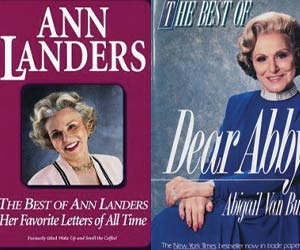Book Overview
Trilby, a classical book, has been considered important throughout the human history, and so that this work is never forgotten we at Alpha Editions have made efforts in its preservation by republishing this book in a modern format for present and future generations. This whole book has been reformatted, retyped and designed. These books are not made of scanned copies of their original work and hence the text is clear and readable.
Format:Paperback
Language:English
ISBN:936209360X
ISBN13:9789362093608
Release Date:October 2024
Publisher:Alpha Edition
Length:294 Pages
Weight:0.96 lbs.
Dimensions:0.7" x 6.0" x 9.0"
Related Subjects
Love Triangles Gothic Fiction Classics Fiction Horror Literature Literature & Fiction RomanceCustomer Reviews
5 ratings
Sometimes Laughable, but Overall Good
Published by Thriftbooks.com User , 17 years ago
There were times when I was laughing at the characters and at the plot of the book. For instance there is plenty of filler and then comes the wait to find out who the great new singer taking Europe by storm is. And then the line. "It was Trilby!" If only they could see themselves. It was so obvious to the reader for pages and pages of filler. The characters are a bit flat. Little Billee is some type of enamoured artist and Svengali is a demonic master of music, a simple sort of lovably dumb love interest, there's a disapproving worrying mother worried about social rank and you plug them in to the formula and you get a classic novel. Sometimes I wonder where the art is in a book like this. In this instance it's mostly in the balance of the plot and the timing of suspense and the way the truth all unfolds at the end. Like I said Svengali and Little Billee are a little one dimensional and at that their images are basically used as a plot device, and for the most part the author just tells you what the characters are like more than showing. So my main complaint is that Svengali wasn't as wicked or as mesmeric as I anticipated, basically he's just cheap and spits on Little Billee. Take it up another level of vagueness (hard to call it abstraction) and you've got a guy with a messed up face, a mask, and a protege calling himself the phantom of the opera. These are the shortcomings of the book as I see them, but I can see why it's a classic the story/plot is well done, and the filler is well written, and occasionally entertaining, and occasionally you or I sort of laughed and identified with the the character-introspective passages, but I rarely felt for the characters genuinely.
Very ahead of it's time.
Published by Thriftbooks.com User , 20 years ago
The story essentially centres on the competition between two men for love of one woman, but ultimately each of them abuses her with their own notoins of ownership. It seems to focus on the nature by which we can kill those we love with strangulating beliefs of ownership and imposing standards of behaviour which kill the spirit of the being we direct them at. Given that "ownership" was a strong theme in Victorian marriage, this book was being ultimately brave but it seems the audience at the time of it's release, revelled in it's horror form a gothic point of view, a hugely popular novel movement at the time. It has taken time and changes in attitudes to see the themes beyond the story. This book still has enormous contempary resonance and is a disturbing but important read.
Read it for the atmosphere
Published by Thriftbooks.com User , 22 years ago
The book which put "Svengali" into the English language. I had heard of this book long ago, of course, though i can't remember whether it was first from learning about Svengali or finding out that du Maurier was Daphne du Maurier's father. But i had never read it. In a way i'm glad i didn't, becuase that has given me the opportunity to read it now, for the first time. It has taken me a little longer than i might have expected, but was well worth the time. The story of the tragic Trilby, who cannot sing a note to save her life, and how she is moulded into the singer who takes Europe by storm, by the evil (?)(i'm not sure) musician Svengali, who uses mesmerism of some kind to play her as an instrument. The story is told from the persepective of three Englishmen who lived in Paris during the time Trilby was an artists' model, before she fell under Svengali's spell. The three, Taffy, the Laird, and Little Billee, who was her fiancé at one point, briefly, are artists, of a sort; they love Trilby for herself, and are devastated when she is removed from them by events. Naturally, they are shocked by her reappearance in the world of Culture. But they are delighted at the possibility of renewing her acquaintance. I could wish that du Maurier had not been so cute with his French as "spoken" by the English. I could wish that there is less French altogether, as it does slow down the reading ~ perhaps one reason "Trilby" isn't read any more (is it?). It does generate an atmosphere, though, and you begin to know what Western Europe was like in the middle years of two centuries ago. This edition, Dover, has over a hundred illustrations by du Maurier, who had made his name as a cartoonist for Punch. They are lovely, and add immeasurably to the book.
Worth a read or two...
Published by Thriftbooks.com User , 24 years ago
I have to disagree with the reviewer who commented that this novel is at best a curiosity and that it deserved to fade into obscurity. I read this in a course on 19th century novels and fell in love with du Maurier's writings and his drawings. He uses such wonderful devices to flavor the text and in many ways this satirical view of the aesthetic movement informs the period as much as Oscar Wilde's work does. That the work has some anti-Semitic sentiment it is no more worrisome than anything in Shakespeare (meaning that you must take the work as a work in a period of time). The character types are common enough and the message of the story is timeless--I'll leave the discernment of the message to the reader. Reading this was like uncovering your grandad's favorite toy in the attic and realizing it was still fun to play with today.
Victorism triumphant!
Published by Thriftbooks.com User , 24 years ago
Three British artists go to paint in the Bohemian Latin Quarter of Paris, in the 1860s. Taffy Wynn, a reserved and good-natured English giant, resigned his cavalry commission after missing, by mischance, death or glory in the Charge of the Light Brigade. Sandy, the Laird of Cockpen, is a Scottish lawyer's son. Little Billee Bagot is the youngest, slight of build, of almost childish innocence, and yet the others realise that as a painter, he may someday tower above them. The life and characters of the Latin Quarter are marvellously described, and we can only guess, nowadays, at some of the identities. Whistler the painter was much aggrieved. The three strike up a friendship with Trilby, daughter of a deceased Irish drunkard and Scottish barmaid, who is a laundress and artists' model. She is deeply unsettled by the sinister Svengali, a Jewish pianist with hypnotic powers. The book is often accused of crude antisemitism, but "crude" seems unjust. Du Maurier claims that Little Billee has some proportion of that Jewish blood which is best diluted, but adds something to all others. Svengali's cruelest jest - they think - is to encourage Trilby to sing, saying she has the finest voice he knows. For she is tone-deaf, and the exhibition is grotesque. Billee proposes marriage, and Trilby, who loves him, is induced to flee Paris. For besides being a laundress, she sits for "the altogether", and would destroy Billee's life in respectable society. She disappears, and only many years later is she discovered, as Madame Svengali, the singer whose fame is taking Europe by storm. For Svengali spoke nothing but the truth. She did indeed have the finest voice in Europe, which she was entirely unable to use, and that consummate but warped artist, by skill as much as hypnotism, has taught her to be the nightingale of her age. The story ends tragically, as Victorian melodramas do. But high tragedy arises when a great and noble hero comes to grief through some fatal misconception. Trilby, in her last years, is highly enough respected to have elevated even the great William Bagot, rather than dragged him down. Suppose he and his family had realised? Suppose Svengali, although partially redeemed, had been unselfish enough to tell all, and teach her in Paris? Joseph Heller wrote of a character whose girlfriends had to wait until a play was over, to know whether they were enjoying it, and then they knew at once. The literary establishment does not like sentiment, because the ordinary reader does not need any help to know if he likes it. But if you want to sample Victorian sentimentalism at its best, this is where to start.
Trilby Mentions in Our Blog

Literary Kinfolk
Published by Ashly Moore Sheldon • August 19, 2020
Whether due to genetic similarities or like-minded unions, there are many famous authors who are related to other authors by birth or marriage. Here we profile a handful of writer-to-writer relationships, juicy details and all!






